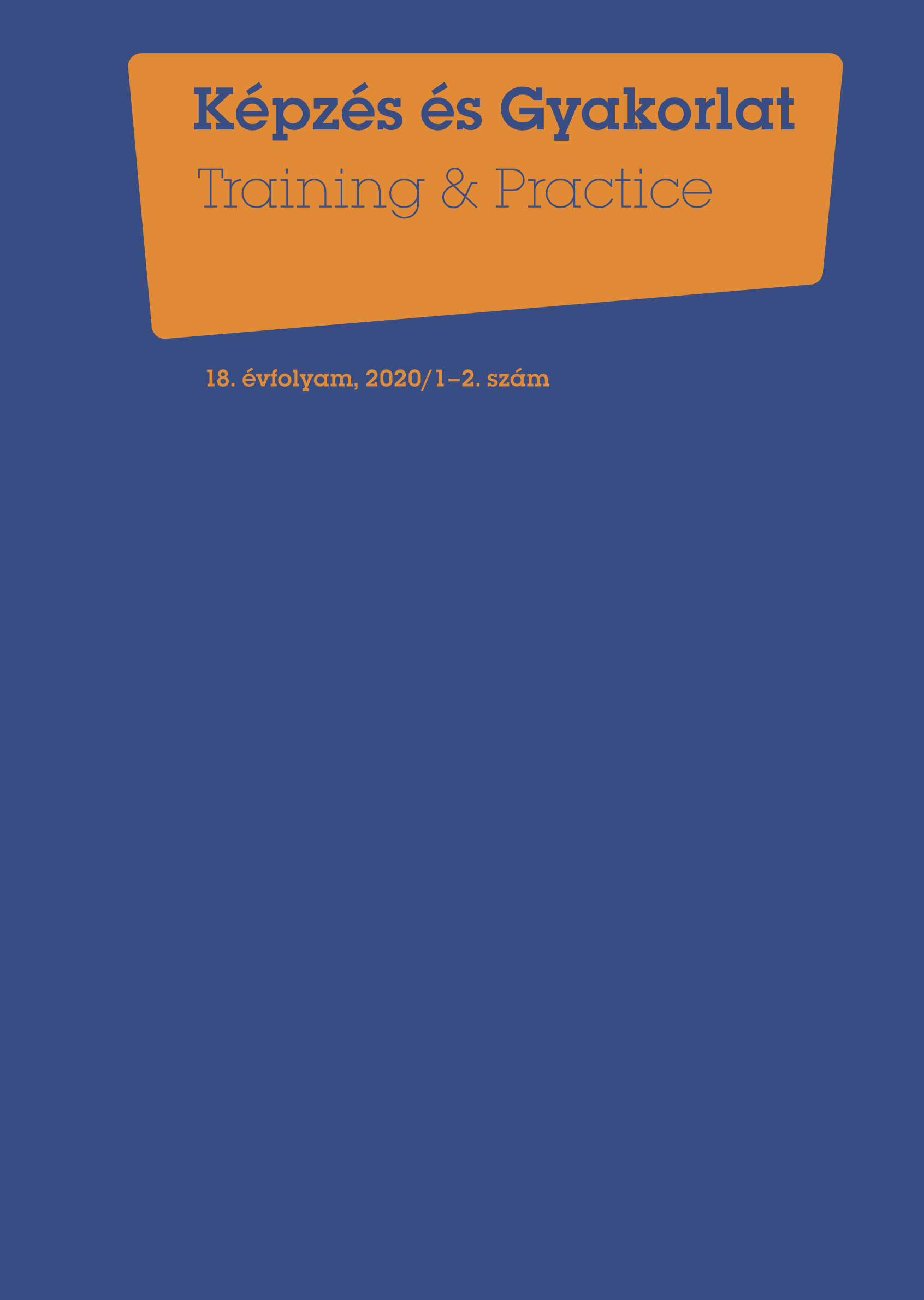Competence, sport education from the perspective of students in sports science education
DOI:
https://doi.org/10.17165/TP.2020.1-2.2Abstract
Regular sports develop a range of competencies that have a positive impact on both your work and your private life. In this study, we examined the issue from the perspective of students in Higher Education in Sport Sciences. The results show students' sports habits, which are significantly better than the national data. In addition, the responses to the questionnaire survey show that regular sports do not adversely affect study time and reduce leisure time; only marginally. In the opinion of those who complete the questionnaire, one of the competencies developed by sport is stamina and a competitive spirit that can be clearly utilized in the world of work in the future. Communication skills and controllability are considered to be the least developed competencies.
References
Baker, C. W. - Little T. D. - Broenell K. D. (2003). Prediting adolescent eating and activity behaviors: The role of social norms and personal agency. Health Psychology, 22, pp. 189-198. DOI: https://doi.org/10.1037/0278-6133.22.2.189
Bauer, B. - Pillók, P. - Ruff, T. - Szabó, A. - Szanyi F., E. - Székely, L. (2017). A Magyar Ifjúság Kutatás 2016 első eredményei. Budapest: Új Nemzedék Központ
Bize, R. - Johnson, J. A. - Plotnikoff, R. C. (2007). Physical activity level and health-related quality of lif in the general adult population: A systematic review. Preventive Medicine, 45 (6), 401-415. DOI: https://doi.org/10.1016/j.ypmed.2007.07.017
Blattné, P. (2017). Sportoló tanulók kapcsolati hálója. In. Borsos, É. Nmesztovszi, Zs., Németh, F. (ed), A Magyan Tannyelvű Tanítóképző Kar 2017-es tudományos konferenciáinak tanulmánygyűjteménye, (pp 70-80). Szabadka
Brohm, B. A. (2002). Linking Extracurricular Programing to Academic Achievement: Who Benefits and Why? Sociology of Education I. (pp. 69-95) DOI: https://doi.org/10.2307/3090254
Eurobarometer (2018). Special Eurobarometer 472. Sport and Physical activity. https://ec.europa.eu/health/nutrition_physical_activity/eurobarometers_hu [2019.01.31]
Faragó, B. -Konczosné Szombathelyi M. (2018). A sportolói kompetenciák hatása a humán tőkére in. Dobrai K., László Gy., Sipos N. (ed). Farkas Ferenc Nemzetközi Tudományos Konferencia Tanulmánykötete, (pp. 379-391). Pécs, PTE KTK
Gombocz J. (2010). Sport .és nevelés. Keszthely: Balaton Akadémia
Gősi, Zs. (2018). Magyarországi iskolarendszer alapú sporttámogatások, Sport, tanulás, karrier. Neveléstudomány: Oktatás, kutatás, innováció 6: (2) pp. 44-60. DOI: https://doi.org/10.21549/NTNY.22.2018.2.4
Izzo, R. (2010). The Educational Value of Comptetive Sport. Sport Science Review 3-4. pp. 155-164. DOI: https://doi.org/10.2478/v10237-011-0023-x
Kovács, K., (2015). Speciális hallgatói csoportok eredményessége - A sportolás hatása a tanulmányi eredményekre In Pusztai, Kovács, K., (Ed.): Ki eredményes a felsőoktatásban (pp. 161-171) Nagyvárad-Budapest
Mikulán, R. - Keresztes N. - Pikó, B. (2010). A sport mind védőfaktor: fizikai aktivitás, egészség, káros szenvedélyek. In. Pikó, B. (szerk.): Védőfaktorok nyomában, (pp 115-130). Budapest. L'Harmattan.
Paár D. (2013). A magyar háztartások sportfogyasztásának gazdasági szempontú vizsgálata. [Doktori disszertáció]. Sopron: Nyugat-magyarországi Egyetem.
Patakiné Bősze, J. (2014). Sportiskolai és nem sportiskolai mintatanterv szerint tanulók életmódja és egyes családi jellemzői, azok összefüggései. [Doktori disszertáció]. Budapest: Eötvös Loránd Tudományegyetem, Neveléstudományi Doktori Iskola
Patakiné Bősze, J. - Lehmann, L. - Huszár, Á. (2014). Helyzetjelentés a sportiskolából, szabadidő eltöltés és sport - 2013, Magyar Sporttudományi Szemle, 15 évf. 2. sz. (58.), 51. p.
Perényi Sz. (2011). Sportolási szokások: Sportolási esélyek és változástrendek. In: Bauer B., Szabó A. (szerk), Arctalan Nemzedék. (pp. 159-184). Budapest: Belvedere Meridionale Kiadó
Pluhár Zs. - Keresztes N. - Pikó B. (2003). "Ép testben ép lélek" - Középiskolások értékrendje fizikai aktivitásuk tükrében. Magyar Sporttudományi Szemle, 4. évf. 2. sz., pp. 29-33.
Pikó B. - Keresztes N. (2007). Sport, lélek, egészség. Budapest: Akadémiai Kiadó
Sanda I. (2016). Fejlesztő értékelés. Szakmai Pedagógusképzés Sorozat 24. kötet. Budapest: Typotop
Taylor, W. C. - Baranowski, T. - Klesges, L. M. - Ez, S. - Pratt, C. - Rochon, J. - Zhou A. (2004). Psychometric properties of optimism and pessimism: Results from the Girls' Health Enrichment Multisite Studies. Preventivie Medicine 38(S1) pp. 69-77. DOI: https://doi.org/10.1016/j.ypmed.2003.10.015
Szabó K. - Hámori B. (2006). Információgazdaság. Budapest: Akadémia Kiadó
Tóthné Téglás T. (2016): Kompetencia vállalati, munkavállalói és felsőoktatási szemmel. In: Csiszárik-Kocsir Á. (Szerk.), Vállalkozás a XXI. századba VI. tanulmánykötet (pp. 413-432). Budapest: Óbudai Egyetem
Downloads
Published
Issue
Section
License
Copyright (c) 2020 Gősi Zsuzsanna, Faragó Beatrix

This work is licensed under a Creative Commons Attribution-NonCommercial-NoDerivatives 4.0 International License.












